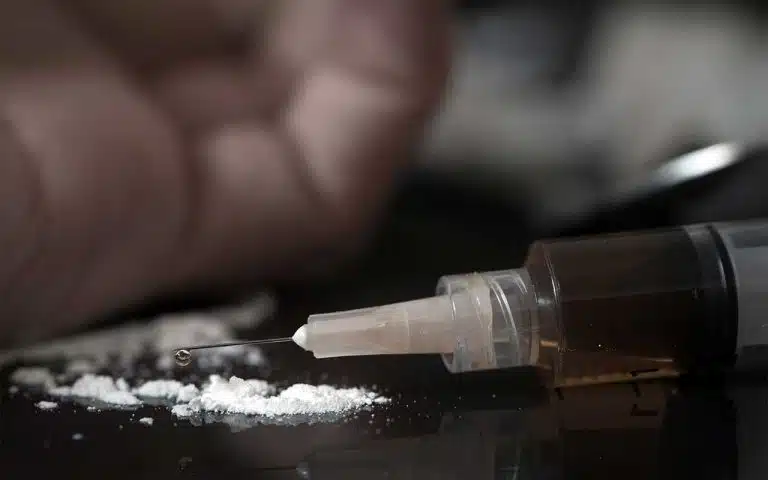From July 2019 to July 2020, there have been about 14,000 reported deaths due to heroin overdose in the United States.
The official number of deaths due to substance abuse for all of 2020 has not been released by the Centers For Disease Control and Prevention (CDC) or other organizations. The most recent data is from a 12-month period ending in July 2020.
Most organizations are still recording and compiling their drug abuse and overdose statistics. However, total overdose deaths were trending upwards for the first half of 2020, for a number of reasons.
2020 Heroin Overdose Deaths
During the first few months of the coronavirus pandemic, there was a spike in drug overdose deaths. The CDC reports that synthetic opioids (like fentanyl), as well as cocaine, were the primary causes of overdose deaths beginning in March 2020.
Historically, heroin can be mixed with these substances. Mixing substances can lead to higher chances of overdose on fentanyl, cocaine, and methamphetamines.
Some states have reported data on heroin overdose deaths for part of 2020. New York saw an increase in overdose deaths, where fentanyl was often mixed with heroin. Ohio’s Department of Health projected the state will have record-breaking drug overdose deaths.
2020 Heroin Withdrawal Deaths
Not much data is publicly available for heroin withdrawal deaths in 2020. However, opioid withdrawal continues to be a widespread and misunderstood issue.
Heroin withdrawal can be a cause of death in some cases. In general, opioid withdrawal can cause severe vomiting and diarrhea. This can lead to severe dehydration, increased sodium levels in the blood, and heart failure.
Uncomfortable and painful withdrawal symptoms may be difficult to handle without treatment. This can lead to a relapse, which can in turn cause an opioid-involved overdose death.
Other Opioid Use Statistics In 2020
Overall, the amount of fatal overdoses due to heroin has been decreasing slightly since 2017. There were about 16,000 overdose deaths during that year, compared to about 14,000 from July 2019 to July 2020. However, opioid abuse is still a pressing issue in the U.S.
A decrease in heroin abuse may lead to an increase in other opioid use. This is supported by the dramatic increase in synthetic opioid overdose deaths in the same time frame. As heroin becomes less available in illegal drug markets, it can be replaced by other opioids.
Prescription opioid misuse is also still widespread. About 80 percent of people who abuse heroin have a history of prescription opioid misuse.
Treating Heroin Overdose & Opioid Use Disorder
Opioids like heroin are a dangerous form of substance use. They are known to cause opioid use disorder (OUD), a mental health condition. In severe cases, OUD can lead to overdose, withdrawal, hospitalization, and death.
Heroin overdose is treatable and preventable. In case of an overdose, naloxone can be given to reverse the effects of overdose which could be fatal otherwise. In the long-term, medications like methadone can help a person come off heroin before an overdose happens.
The COVID-19 pandemic may make OUD worse for some. They may feel like their resources are cut off, or their daily life has been thrown out of rhythm. However, treatment options are available. To learn more, please contact us today.
Written by Ark Behavioral Health Editorial Team
©2024 Ark National Holdings, LLC. | All Rights Reserved.
This page does not provide medical advice.
Centers for Disease Control and Prevention - NCHS Data Brief, Number 356, January 2020
Centers for Disease Control and Prevention - Overdose Deaths Accelerating During COVID-19
Centers for Disease Control and Prevention - Early Provisional Estimates of Drug Overdose, Suicide, and Transportation-related Deaths: Nowcasting Methods to Account for Reporting Lags
The Columbus Dispatch - Ohio deaths from drug overdose may set new record in 2020
National Center For Health Statistics - Provisional Drug Overdose Data
NYC Health - Consistent With Nationwide Trends, Overdose Deaths Rise in New York City in First Quarter of 2020
Wiley Online Library - Yes, people can die from opiate withdrawal

Questions About Treatment?
Ark Behavioral Health offers 100% confidential substance abuse assessment and treatment placement tailored to your individual needs. Achieve long-term recovery.
100% confidential. We respect your privacy.
Prefer Texting?
Our friendly support team is here to chat 24/7. Opt out any time.








 Learn More
Learn More








